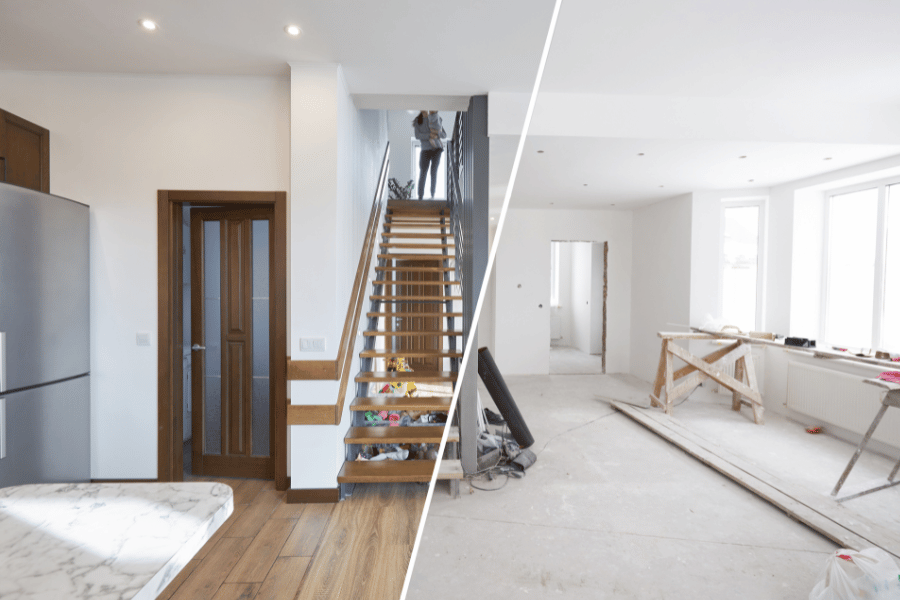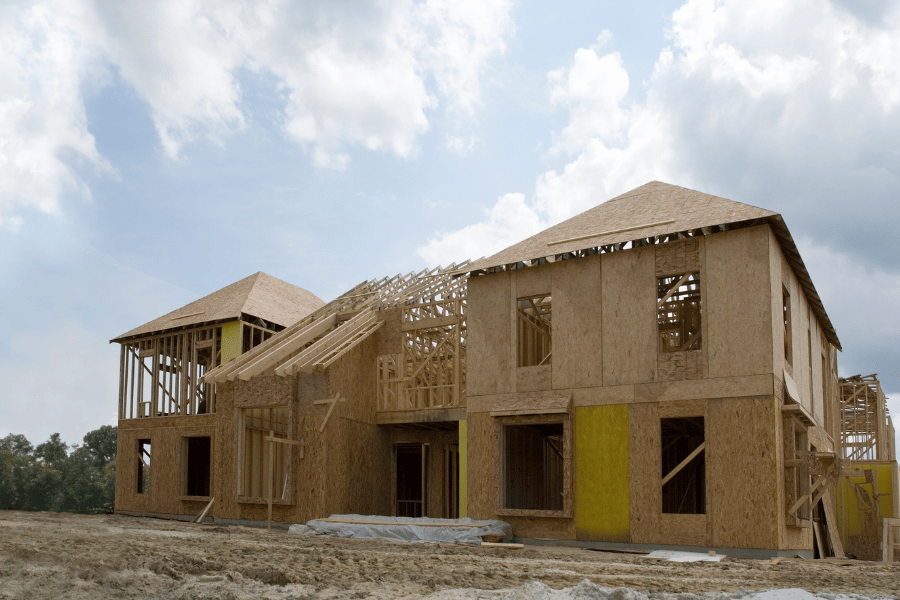Pros and Cons of Renovating a Home vs. Building a New One: Home Buyer's Guide
There are many ways to become a homeowner, but buying new construction is not your only option. From cost to creative freedom, here are the pros and cons of renovating a home vs. building a new one.
Becoming a first-time homeowner can be a roller coaster with highs and lows. First-time homeowners have to deal with issues surrounding construction, renovation, and interior design (all while staying on budget).
Potential homeowners don't have to buy brand-new construction. When you're ready to find your dream home in Raleigh, you'll face a crucial decision: Should you buy a fixer-upper and renovate or purchase a move-in-ready new home? Both paths offer unique advantages and challenges that can significantly impact your finances, timeline, and overall satisfaction.
Check out the pros and cons of renovating vs. buying a new home
1. Pros of Renovating
Can Save You Money
One path to becoming a homeowner is buying and renovating an older home. Depending on the state of the house when you purchase it, this route can help you save money.
In most cases, a home that needs renovations will be cheaper than new construction. However, it is essential to understand what you are getting into when you buy a home to renovate. If the costs of the renovations are too high, then you won't have much of a return on your investment.
The goal is to renovate your home to increase its value. Be sure to bring in qualified contractors and home inspectors to determine whether the renovation will be worth the return on your investment.
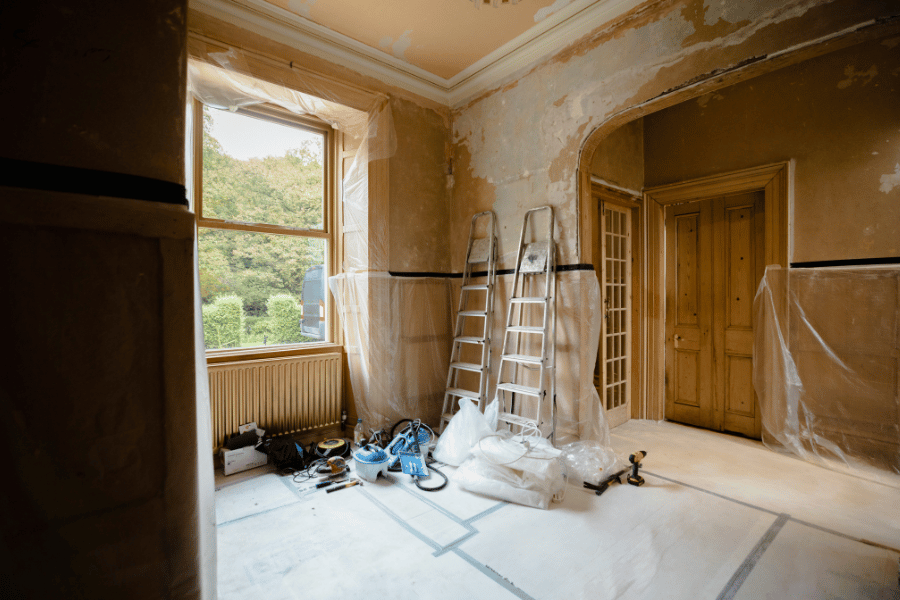
Potential for Significant Equity Building
A good renovation can add quite a bit of value to your home. And not all of these renovations have to be expensive. Some cost-effective renovations you can do to increase the overall value of your home include:
- Replacing the front and garage doors to improve your home's facade. This can also help to reduce your energy bill by providing better insulation.
- Installing modern upgrades and new fixtures can help make your home more aesthetically pleasing and eco-friendly. If you want to improve a room (like your bathroom), you don't have to gut the entire room. New mirrors and other fixtures can go a long way toward increasing its value.
- Restoring original fixtures in your home can provide a unique quality that future buyers will be interested in. If your home is older and has original hardwood floors, for example, take the time to fix them up instead of replacing them.
If you are looking to make bigger changes, there are several options for increasing the value of your home. Building a mother-in-law suite, installing solar panels, or planting trees on your property can all have a big impact on its value.
The beauty of renovating a home is that you can be creative with how you fix it up and what unique features you add to increase its value.
Decrease Utility Costs
When you renovate a home, you have control over what you prioritize. One great place to start is to make changes that will help decrease your utility costs. There are several ways to make your home more energy-efficient and cost-effective.
You can replace all windows and doors to help insulate your home better. This will reduce your yearly spending on heating and air conditioning. Investing in a smart thermostat can also help you save money on your heating and air conditioning costs.
If you want to make a larger investment that will significantly affect your utility costs, installing solar panels on your property might be the right choice for your home.
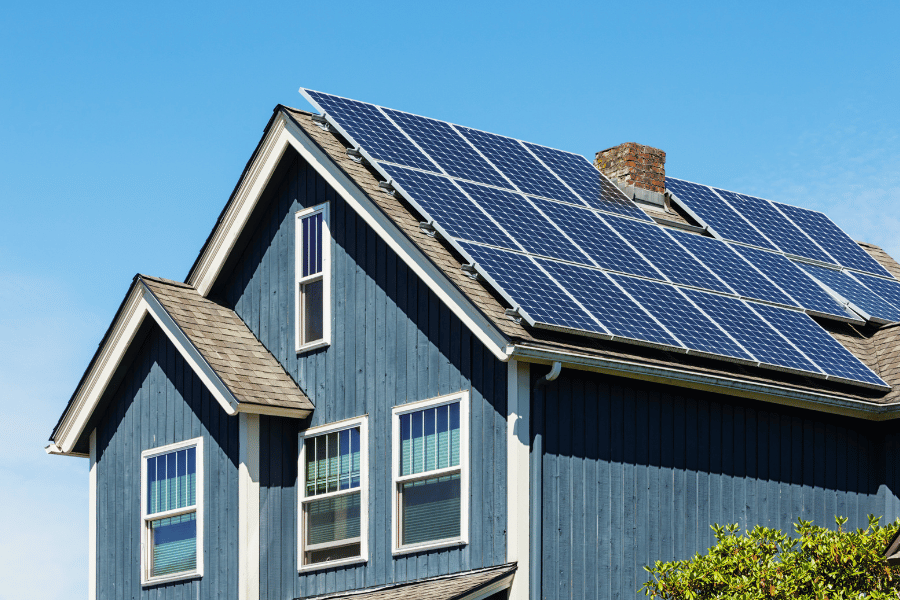
Complete Creative Control Over Your Living Space
Renovating allows you to create a home that perfectly matches your lifestyle and aesthetic preferences. Unlike buying new, where you're limited to the builder's choices, renovation lets you select every fixture, material, and layout detail.
You can create unique features like a custom kitchen Island sized for your entertaining style or a home office designed around your specific work needs.
Opportunity to Purchase in Established Neighborhoods
Many of Raleigh's most desirable neighborhoods, like Oakwood, Five Points, and Cameron Village, primarily feature older homes. Renovating allows you to live in these character-rich areas with mature trees, walkable amenities, and an established community feel that new developments often lack.
Preservation of Character and Unique Architectural Features
Older homes often boast distinctive elements like original hardwood floors, crown molding, or built-in cabinetry that add personality that is impossible to replicate in new construction. Renovating preserves these features while updating the home's functionality.
2. Cons of Renovating
While renovating your home offers quite a few benefits, there are potential problems you should be aware of that can impact the renovation's smoothness.
Unpredictable Costs
When you start a renovation, you develop a budget. The goal is to stay within the budget for the entire renovation. Unfortunately, staying within your budget is not always possible, especially with older and historic houses. Issues like widespread water damage, asbestos, and termites can cost thousands of dollars to repair and can put your project at a much higher price than initially planned.
Try to factor in some money for unseen problems at the beginning of your project. If you find a problem, you have some money already in your budget that you can use. If you don't find a problem, you have extra money to put towards something extra on your wishlist.
Renovations Can Be Time-Consuming
If your renovation doesn't cost a lot of money, it will, at the very least, cost you a good bit of time. It might not take much time if your renovation is mostly superficial (painting the house, installing new fixtures, knocking out a single wall), but even boosting the curb appeal can take time.
However, if your renovation is more involved and widespread, it can be incredibly time-consuming. For example, if you are fixing the foundation, flooring, roofing, plumbing, and electricity (to start), a renovation can take a year or more.
While the renovation is happening, you will need a second place to live. This means you could pay for two homes (one mortgage and one rent payment) for an entire year.
Living Through Construction Disruption
Renovating while occupying your home means dealing with dust, noise, blocked room access, and limited functionality. Major kitchen renovations might require months of eating takeout or cooking in makeshift spaces, while bathroom renovations can force you to use facilities elsewhere in the house.
3. Pros of Buying New
If you don't want to renovate an old house, your best option is to build or buy a new one. This option allows you to be very creative and personal.
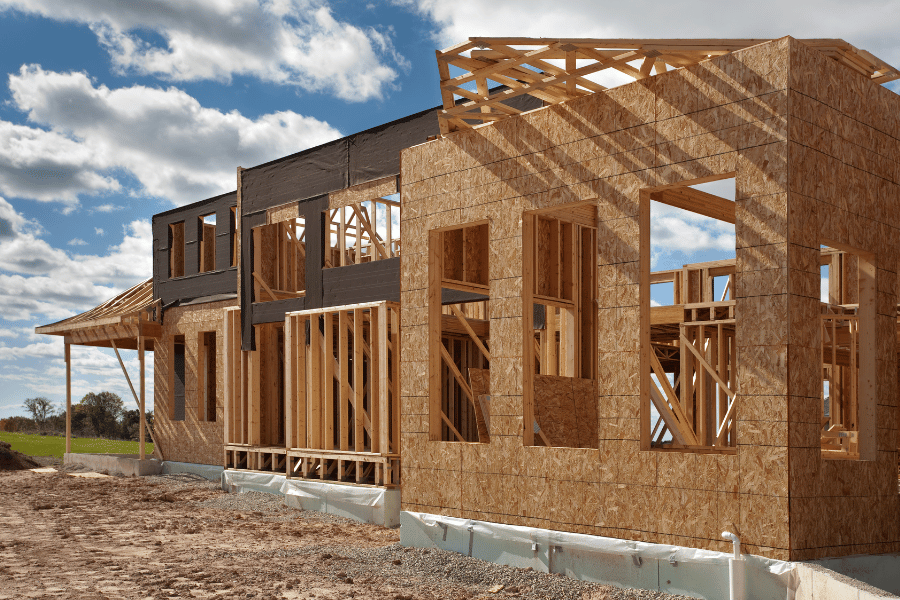
Customization Options During Construction
Building a new construction allows you to have complete control over the style of the home. When you buy a house that is already built, you often have to compromise. The image you have in your head won't always match reality. But when you build your own home, you can have the exact house you've been dreaming of with the help of a good home builder.
To get the most out of building your own home, work with trustworthy architects and contractors to ensure that your home is safe, beautiful, and of good quality.
Avoid Bidding Wars
Housing Prices are rising, and people can easily get pulled into bidding wars with other potential buyers. This process can be stressful. You may offer many different houses, only to have them all rejected by other buyers.
When you build your home, you buy a piece of land. Undeveloped land does not attract the same quantity of buyers as developed land. You won't face as much difficulty when purchasing your land, which can help reduce the stress of becoming a homeowner.
Lower Maintenance
While renovating a home can be a worthwhile experience, old homes also require much maintenance. By building a new home, you can avoid some costly maintenance and repair costs in the near future.
While there may be stressors associated with building the house, once the build is done, you will have very few problems with the home for your first several years.
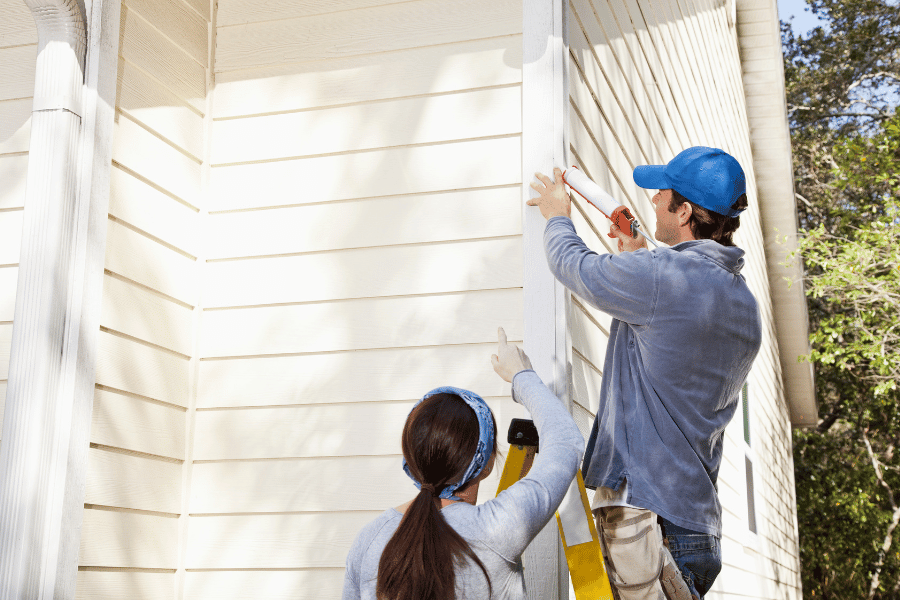
Modern Energy Efficiency and Lower Utility Bills
The average American spends about $2,000 on energy annually. New homes incorporate the latest insulation, windows, and HVAC technology, significantly reducing energy costs.
Modern appliances, LED lighting, and efficient water heaters can cut utility bills drastically compared to older homes, providing ongoing savings that offset the higher purchase price.
Access to Newest Neighborhoods and Amenities
New developments often feature modern amenities like community pools, fitness centers, walking trails, and playgrounds. These neighborhoods are typically planned with contemporary lifestyle needs in mind, offering better traffic flow, parking, and access to schools and shopping.
4. Cons of Buying New
Building a house of your own gives you the chance to be as creative as you want with your new home, but this path has some downsides.
Higher Purchase Price Premium
New homes typically cost more than comparable homes in the same area. This premium reflects the cost of modern materials, current labor rates, and builder profit margins. The higher price point can strain your budget or force you to accept a smaller home or a less desirable location.
Limited Inventory in Established Neighborhoods
New construction is typically concentrated in developing areas on the outskirts of Raleigh, meaning longer commutes to downtown, established schools, and mature amenities. New construction options may be limited if you prefer neighborhoods with character and walkability.
Potential Quality Control Issues
Despite inspections, new homes can have minor cosmetic and significant structural problems. Some builders prioritize speed over quality, and newly constructed homes may experience settling issues, warranty claim delays, or concerns with subcontractor workmanship.
Lack of Mature Landscaping and Character
New neighborhoods often lack mature trees, established gardens, and neighborhood character, which have developed over the decades. Your new home might sit on a bare lot requiring years of landscaping investment to achieve the curb appeal of established neighborhoods.
Possible Builder Delays and Construction Issues
Weather, permit delays, material shortages, or contractor scheduling can push back your move-in date. These delays can be costly if you've already sold your current home or arranged temporary housing and have limited recourse against builder scheduling issues.
5. Making Your Decision
Your Budget and Risk Tolerance: Consider your available cash and comfort level with uncertainty. Renovation requires more liquid funds for unexpected expenses, while new construction offers more predictable costs but higher upfront investment.
Timeline Flexibility: If you need to move quickly or have scheduling constraints, new construction with a firm completion date might be preferable. Renovation offers more flexibility if you can live with uncertainty and potential delays.
Desired Location: Your preferred neighborhood may dictate your choice. Established areas like North Hills or Glenwood South primarily offer renovation opportunities, while new construction dominates areas like Apex or Cary.
Personal Involvement Preference Some homebuyers enjoy the hands-on process of renovation and design decisions, while others prefer the simplicity of selecting options from a builder's menu. Consider your available time and interest in managing construction processes.
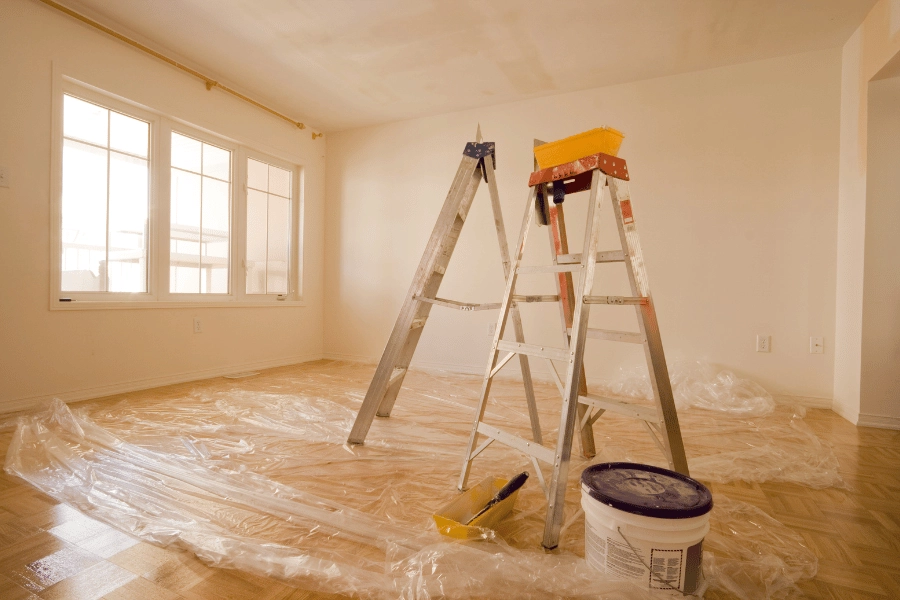
Methodology
Data was sourced from the U.S. Department of Energy and the Wall Street Journal to determine the pros and cons of renovating a home vs buying a new one.
FAQs
Is it better to renovate your house or buy a new one?
Deciding to renovate vs buying a new house will depend on multiple factors, but renovating is generally the most cost-effective option.
What is the 30% rule for renovations?
The 30% rule for renovations is a great rule to follow if you want to avoid overspending. This rule states that you keep your renovation budget within 30% of the property value.
What is the most expensive part of the house to fix?
Structural issues are typically the most expensive part of the house to fix , and they can include foundation repair and roof replacement.
Renovating Vs. Buying a New One: Pros and Cons - Final Thoughts
Whether you renovate or buy new, Raleigh Realty's experienced agents can guide you through the process. We'll help you evaluate properties, understand market values, connect with trusted contractors and builders, and ensure you make the best decision for your family's needs and budget.
Contact us today to explore your options and find the perfect home solution in Raleigh's dynamic real estate market.
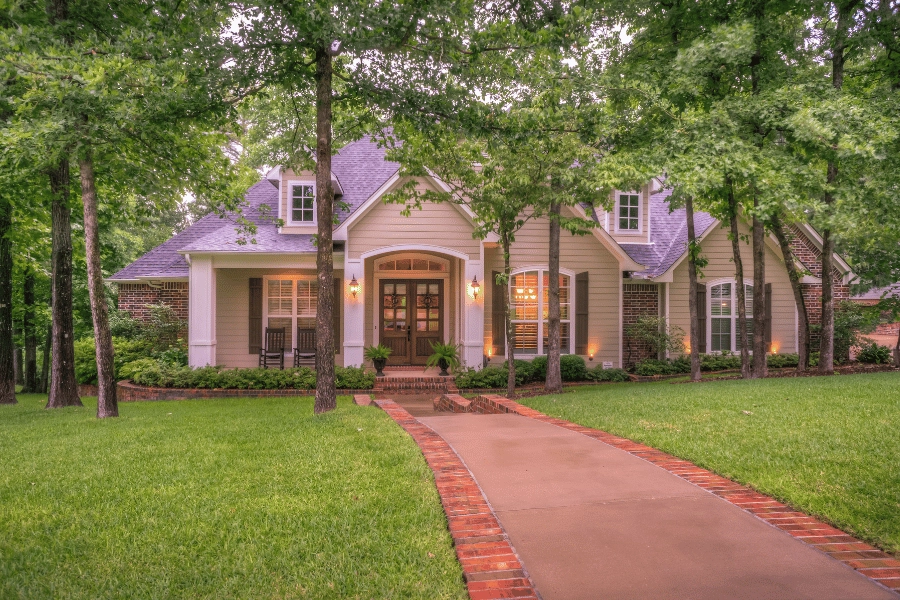
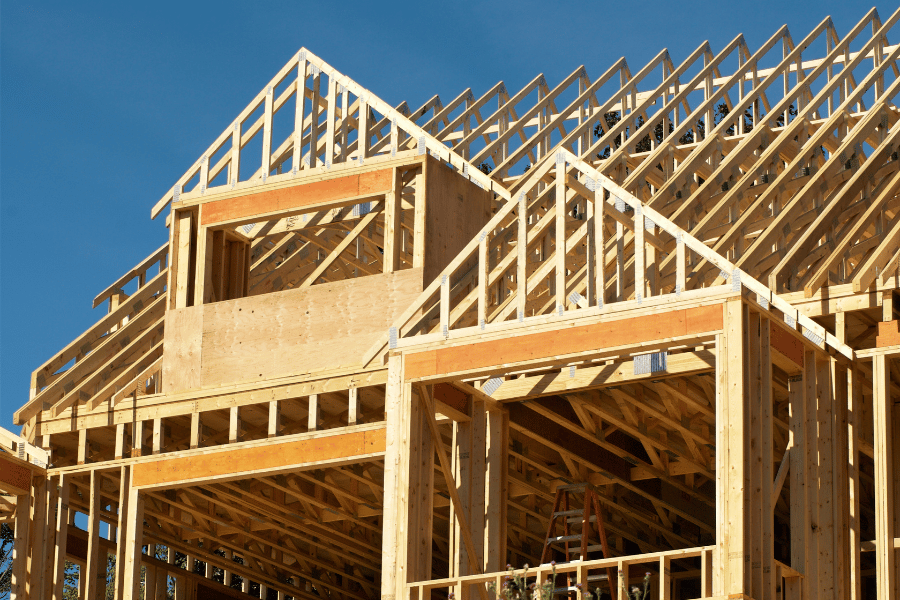
.png)
